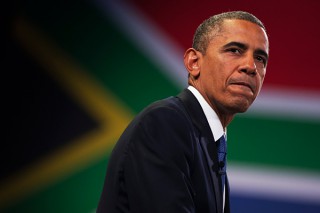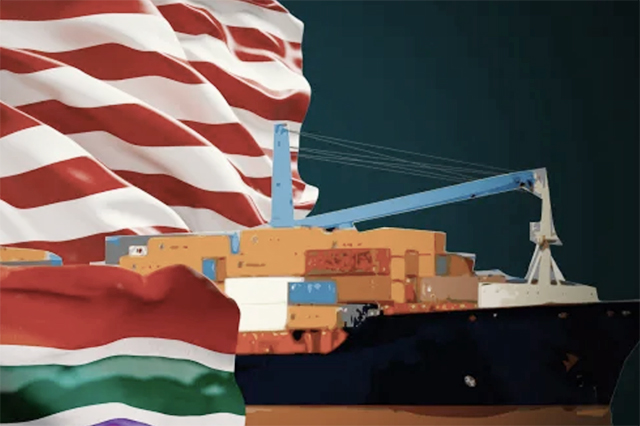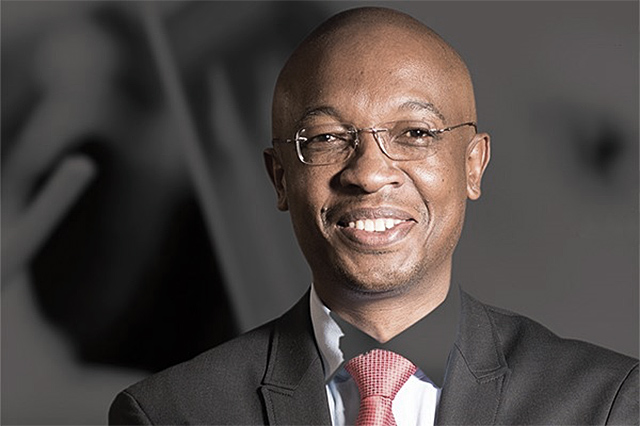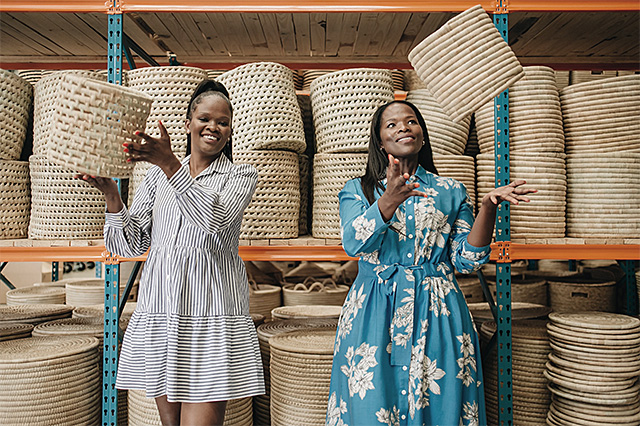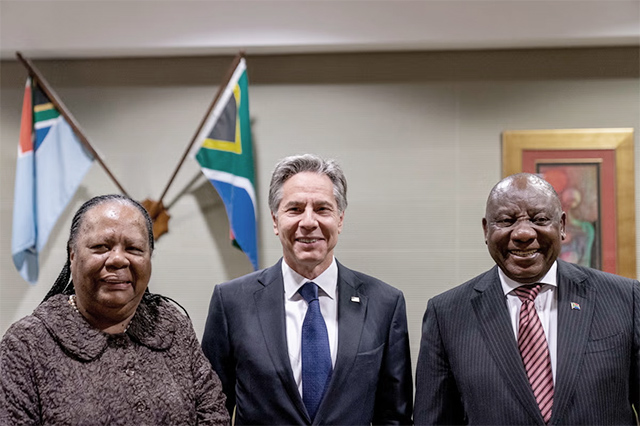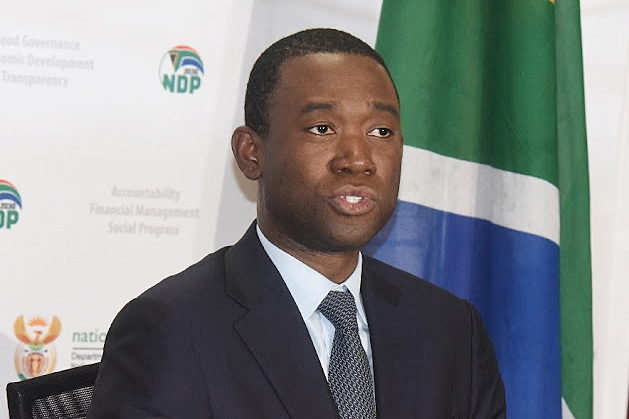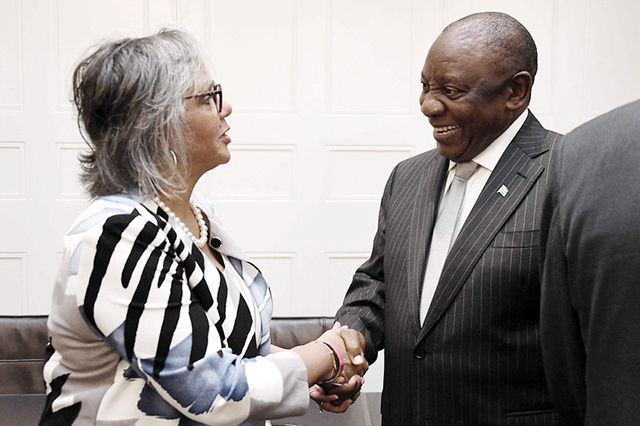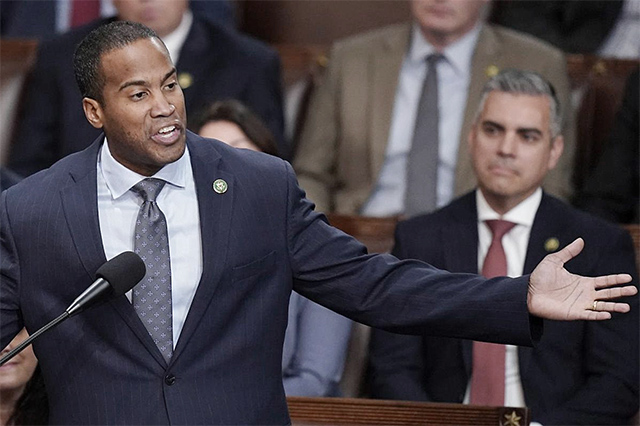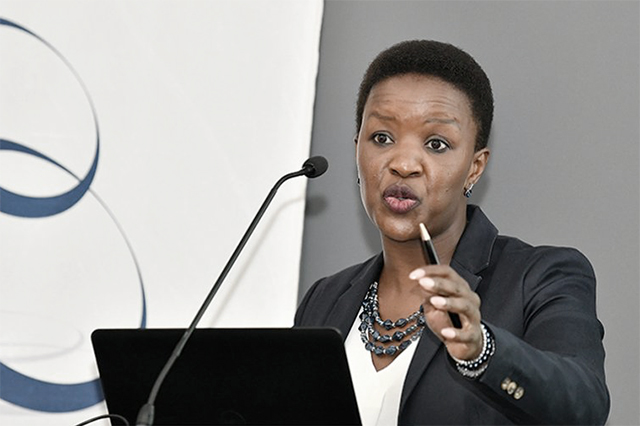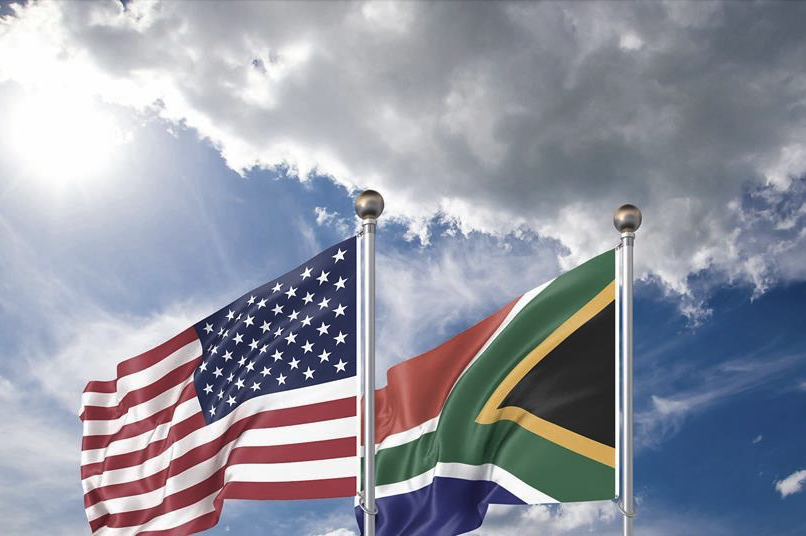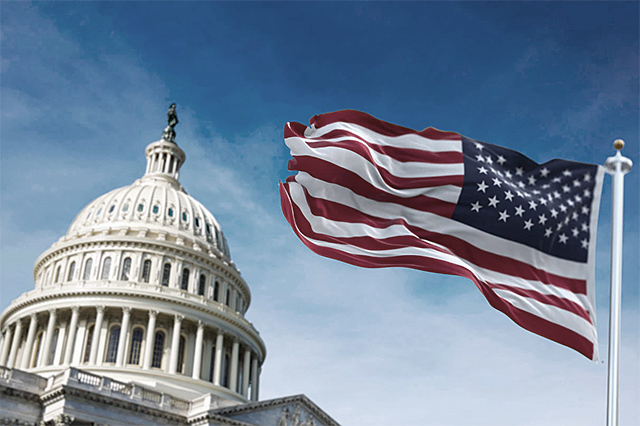Opinion piece: US and SA must face social ills and stop playing chicken
I was enjoying one of those convivial academic evenings.
A nice, cold Cape chenin blanc, a plateful of chicken and conversations about whether statues should be removed from campus and the challenges of student fees and loans.
The catering staff circulating silently through the throng were almost all black and the academics mainly white, apart from the statutory foreign guests.
But this was not just another of the post-lecture receptions you might stumble across at Wits, the Univerity of Johannesburg, the University of Cape Town or Stellenbosch. It was at the University of North Carolina, proudly the US’s oldest public university. The occasion offered an interesting perspective on SA’s challenges — and a chastening reminder of how tough change can be and how long it can take to achieve.
The statue we were talking about was that of Silent Sam, a confederate soldier. It stands in the Chapel Hill university precinct, a memorial to the students who, at the outbreak of the American civil war 150 years ago, threw down their books (well, that’s the image on the statue’s plinth) and marched off to the drumbeat of the Confederate Army to join the fight and "preserve their independence". And, the story continues, since the statue has no cartridge box on the belt, the soldier could not shoot.
It all sounds a little contrived, and cannot distract from the fact that the independence those students fought for involved retaining their right to own African slaves; or that public education for black people was not even thinkable at the time. As a consequence, there have been regular student protests on the campus, the latest the week before I arrived. Many students and others feel that the time has come for Silent Sam to march off to a museum.
Meanwhile, student fees and loans are a universal subject of academic conversation. It’s particularly acute in the US since students typically graduate with a debt of R1m into a job market nowhere near as lucrative as it used to be. If you don’t have family backing, you think twice about taking on that debt. So the benefits of historic privilege and the costs of racial discrimination still play out in school education and access to university.
But it was the differential demographics of academics and support staff that had me doing a double take, wondering whether it was my jet lag that was inducing the déjà vu sensation. So I got into conversation with the African American couple behind the bar, complimented them on their fine choice of wine and told them our chicken and wine story. I explained that we believe US producers are dumping chicken drumsticks on our market, but have been told by the US government that these legs are surplus to local requirements.
I lamented the fact that, if this dispute was not resolved, they would probably not be able to serve our fine wine by this time next year. Then, in the spirit of social enquiry, I asked whether it is true that Americans don’t like chicken wings, thighs and drumsticks. "Nonsense," they laughed. These were among their favourite foods.
This threw an interesting light on the nature of the US drumstick and wing surplus. It is at moments like this that disparate pieces of information you collect as a traveller come together into a coherent whole.
I had taken the Amtrak train from Washington DC to Durham, North Carolina. The Carolinian, as it is named, is not a recommended tourist attraction.
As a post on one tourist website warns, "People do not want to live next to the railroad, so prices for those houses are very low, attracting people without much money. That also means they can’t keep up with the maintenance, and before long, the entire neighbourhood adjacent to the tracks looks like what you saw."
A lot of what you see from the train is really poor housing and poor people, disproportionately black, living in places far from economic opportunity, just like home. And, just like home, the people using public transport are disproportionately black while the car drivers are disproportionately white.
What you don’t see, unless you dig through the dense websites of the US government, is the bigger picture. According to the US department of agriculture, 12% of American children — about 16-million — live in "food-insecure households". Crudely, they regularly go hungry. The main reason those households are food-insecure is that they do not have the income to buy enough healthy food. And a disproportionate number of them are black.
So, coming back to those drumsticks, we know that there is no shortage of food in America. But, at household level, there are food shortages. And that problem revolves around prices and incomes.
It turns out that frozen chicken on the South African market is cheaper than it is in the US — at least that’s what my internet comparison shopping shows. You can buy imported frozen chicken drumsticks from Die Vleispot in Krugersdorp for 94 US cents a pound, compared to 99c a pound on special offer this month in a discount supermarket in North Carolina.
Without going into the technical definition of dumping these price comparisons might raise, this suggests we could usefully consider intervening in US social policy.
We could suggest to the US government that it needs to make more drumsticks available for all those poor people living along the railway tracks, while we get by with our locally produced ones. They could do it our way — by increasing the amount they pay in social grants — or their way, which is to set up special food-distribution "pantries".
Either way, their farmers and ours would be happy. And happy farmers help to keep politicians happy.
The response might well be that one consequence of this radical proposal will be to increase the price of frozen chicken for South Africans. And indeed it might, a little. But the idea of trade is that we sell what we’re good at — like wine — and with the income earned from the farms and wineries, people can buy chicken. Meanwhile, producing that chicken locally will put more people in work and, who knows, we may even be able to afford General Electric locomotives to take people to work in cities.
Of course, SA has some rather large obstacles to overcome.
We have a legacy of deliberately poor education that makes it difficult for many of the poor majority of young South Africans to access and benefit from universities and work opportunities. Their precarious household economies are not particularly conducive to taking the risk of loans to fund a venture that is by no means guaranteed to lead them to gainful employment.
We still face the burden of historic racial separation as well as an unwillingness — or is it simply an inability? — to recognise the need for change.
But if there is one lesson to be learnt from the US, or at least from this little corner of North Carolina, it is that unless we make a concerted effort, the wounds will still be visible 100 years from now.
• Muller is a visiting adjunct professor at the Wits University School of Governance


